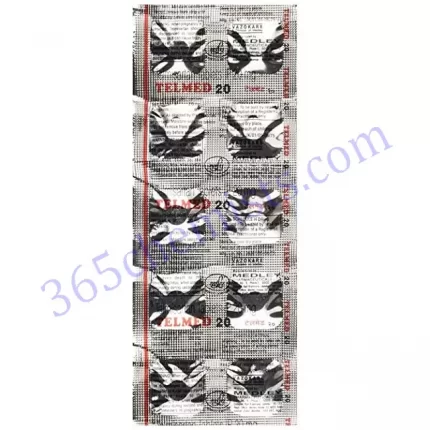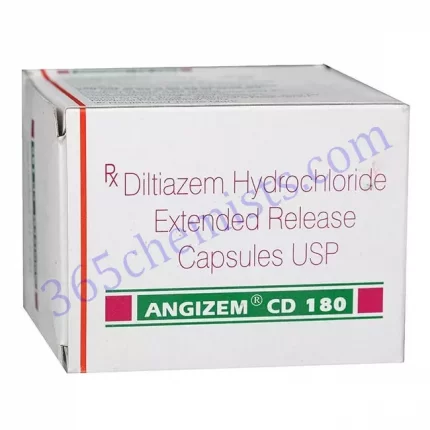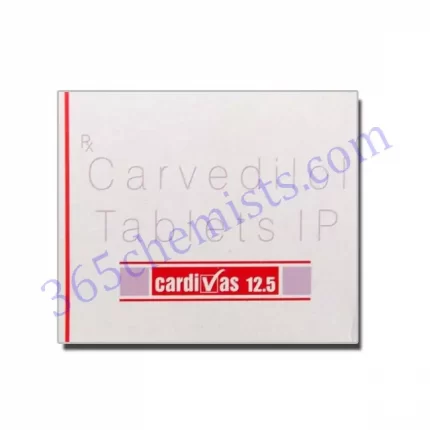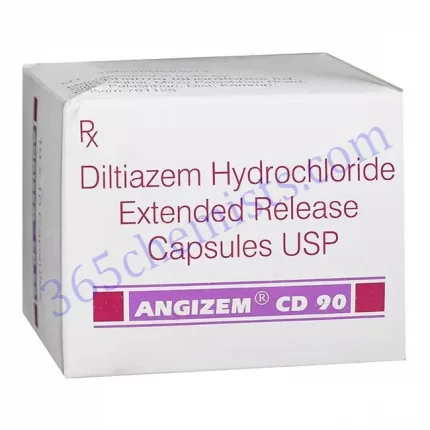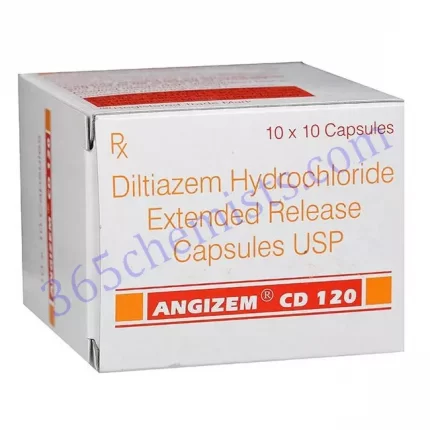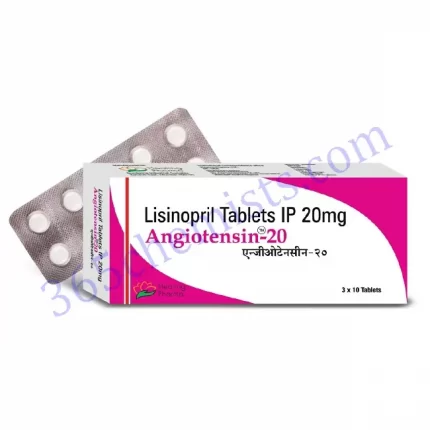Telmed 40mg Tablet (Telmisartan 40mg):
Telmisartan 40 mg is the active component in the tablet form of the medication known as Telmed 40 mg, which is one of the most commonly prescribed medications. Telmisartan is primarily employed in the treatment of hypertension, also known as high blood pressure, in adults. It is a member of the group of medications known as angiotensin II receptor blockers (ARBs). By inhibiting the activity of a hormone known as angiotensin II, which narrows blood vessels and raises blood pressure, this medication contributes to the reduction and maintenance of healthy blood pressure levels. Tablets of Telmed 40 mg are available to be taken orally and are intended to be consumed once daily, regardless of whether they are taken with or without food.
How Telmed 40mg Tablet Works
The pharmacological effect that is caused by taking a Telmed 40mg Tablet is accomplished by selectively inhibiting the binding of angiotensin II to the angiotensin II type 1 (AT1) receptor, which is primarily located in the smooth muscle cells of blood vessels. Telmisartan reduces blood pressure by inhibiting the action of angiotensin II, which results in blood vessel dilation, which in turn leads to a decrease in peripheral resistance, which in turn leads to a reduction in blood pressure. In addition, because it inhibits the production of aldosterone, which is a hormone that encourages the retention of sodium and water, telmisartan assists in lowering the amount of work that needs to be done by the heart.
Indications for Telmed 40mg Tablet
The primary purpose of the Telmed 40mg Tablet is to assist in the management of hypertension, also known as high blood pressure. It is possible to use it by itself or in conjunction with a number of other hypertensive medications. The prevalence of hypertension, a condition that raises one’s likelihood of developing cardiovascular diseases like heart attack and stroke, is on the rise. Telmisartan is helpful in the management of hypertension and in lowering the risk of complications that are associated with it. It is essential to take the medication exactly as directed and to follow up with a qualified medical professional on a consistent basis in order to have your blood pressure monitored and your treatment modified as required.
Related Product
Telmed 20 Tablet
Telmed 40 Tablet
Telmed 80 Tablet
Telmed Beta 25 Tablet
Telmed Beta 50 Tablet
Telmed CT Tablet
Telmed H Tablet
Telmed H80 Tablet
Telmed AH 80 Tablet
Dosage and Administration
When treating hypertension, the typical starting dose of Telmed 40mg Tablet is 40 mg, to be taken orally once daily. This is the recommended starting dose. The individual’s response as well as the opinion of the prescribing physician will determine whether or not the dosage should be increased to 80 mg once daily. You can take telmisartan with or without food, but it is critical to take the medication at the same time every day in order to maintain consistent blood levels. Patients with renal impairment or those who are receiving concomitant diuretic therapy may have their dosage adjusted as necessary. It is of the utmost importance to ensure that the prescribed dose is not exceeded while also following the instructions provided by the medical professional.
Precautions and Warnings
Before beginning treatment with Telmed 40mg Tablet, it is essential to discuss any preexisting medical conditions with a qualified medical professional. These conditions may include kidney or liver disease, congestive heart failure, electrolyte imbalances, or a history of angioedema. When treating patients with renal impairment or those who are undergoing dialysis, telmisartan should be used with extreme caution. It is not advised to be used during pregnancy or while breastfeeding due to the possibility that it will cause harm to the developing foetus or the infant who is nursing. In the event that a person experiences any allergic reactions or symptoms, such as swelling of the face, lips, tongue, or throat, they should seek medical attention as soon as possible.
Possible Side Effects
Telmed 40mg Tablet, like any other medication, carries with it the potential to cause certain adverse effects in some people. Dizziness, headaches, fatigue, back pain, nasal congestion, and respiratory tract infections are some of the more common adverse reactions that could occur. These adverse effects are typically mild and fleeting, and they typically disappear without the need for any kind of specialised treatment. Nevertheless, it is imperative to seek medical advice in the event that any side effects continue or become worse. Notify a medical professional as soon as possible if you experience any serious adverse effects, such as severe allergic reactions, chest pain, irregular heartbeat, or signs of liver problems (such as yellowing of the skin or eyes).
Drug Interactions
There is a possibility that Telmed 40mg Tablet will interact with other medications, which could reduce its efficacy or raise the risk of adverse effects. It is essential to provide the medical professional with information regarding any and all medications that are currently being taken, whether they be prescribed drugs, over-the-counter drugs, or herbal supplements. Telmisartan may have an interaction with lithium, nonsteroidal anti-inflammatory drugs (NSAIDs), potassium supplements, diuretics, and certain diabetes medications. A qualified medical professional will be able to provide direction on the correct application of the Telmed 40mg Tablet as well as potential drug interactions with other treatments.
Conclusion
Telmisartan 40 mg is the active ingredient in Telmed 40mg Tablet, which is a medication that is commonly prescribed for the management of hypertension. Telmisartan helps lower blood pressure and reduces the risk of cardiovascular complications. It accomplishes this by inhibiting the action of angiotensin II. While you are taking Telmed 40mg Tablet, it is essential to adhere to the recommended dosage and keep up with routine follow-up appointments with a qualified medical professional. Telmed 40mg Tablet plays a crucial role in the management of hypertension and promotes overall cardiovascular health. It does this by providing effective control of blood pressure and reducing the risk of complications that are associated with hypertension.



